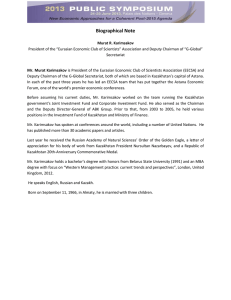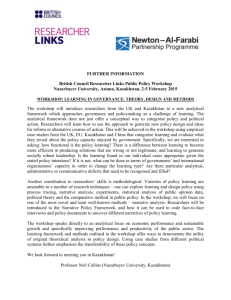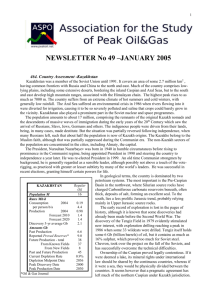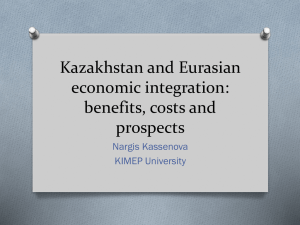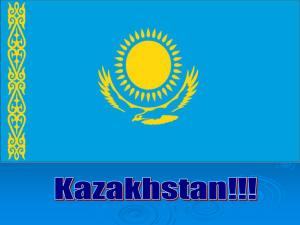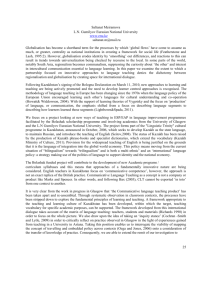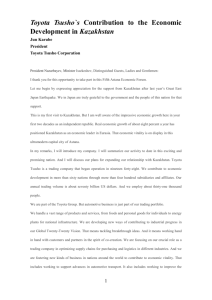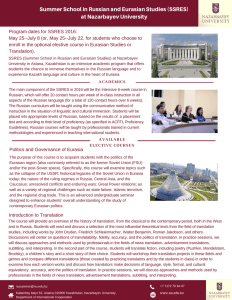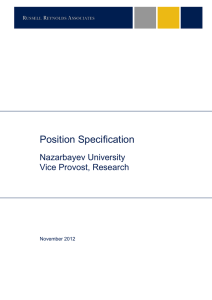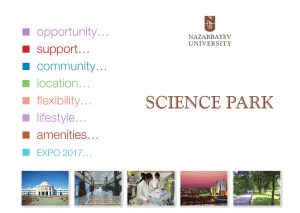final edited ac september 4 conference on kazakhstans constitution
advertisement
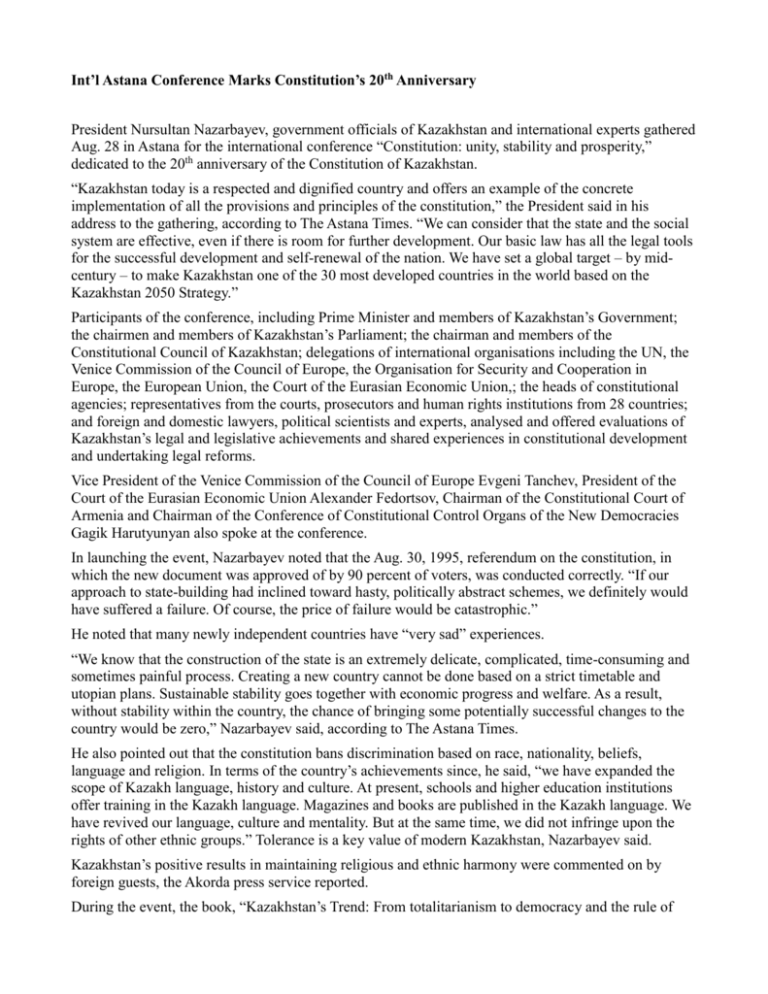
Int’l Astana Conference Marks Constitution’s 20th Anniversary President Nursultan Nazarbayev, government officials of Kazakhstan and international experts gathered Aug. 28 in Astana for the international conference “Constitution: unity, stability and prosperity,” dedicated to the 20th anniversary of the Constitution of Kazakhstan. “Kazakhstan today is a respected and dignified country and offers an example of the concrete implementation of all the provisions and principles of the constitution,” the President said in his address to the gathering, according to The Astana Times. “We can consider that the state and the social system are effective, even if there is room for further development. Our basic law has all the legal tools for the successful development and self-renewal of the nation. We have set a global target – by midcentury – to make Kazakhstan one of the 30 most developed countries in the world based on the Kazakhstan 2050 Strategy.” Participants of the conference, including Prime Minister and members of Kazakhstan’s Government; the chairmen and members of Kazakhstan’s Parliament; the chairman and members of the Constitutional Council of Kazakhstan; delegations of international organisations including the UN, the Venice Commission of the Council of Europe, the Organisation for Security and Cooperation in Europe, the European Union, the Court of the Eurasian Economic Union,; the heads of constitutional agencies; representatives from the courts, prosecutors and human rights institutions from 28 countries; and foreign and domestic lawyers, political scientists and experts, analysed and offered evaluations of Kazakhstan’s legal and legislative achievements and shared experiences in constitutional development and undertaking legal reforms. Vice President of the Venice Commission of the Council of Europe Evgeni Tanchev, President of the Court of the Eurasian Economic Union Alexander Fedortsov, Chairman of the Constitutional Court of Armenia and Chairman of the Conference of Constitutional Control Organs of the New Democracies Gagik Harutyunyan also spoke at the conference. In launching the event, Nazarbayev noted that the Aug. 30, 1995, referendum on the constitution, in which the new document was approved of by 90 percent of voters, was conducted correctly. “If our approach to state-building had inclined toward hasty, politically abstract schemes, we definitely would have suffered a failure. Of course, the price of failure would be catastrophic.” He noted that many newly independent countries have “very sad” experiences. “We know that the construction of the state is an extremely delicate, complicated, time-consuming and sometimes painful process. Creating a new country cannot be done based on a strict timetable and utopian plans. Sustainable stability goes together with economic progress and welfare. As a result, without stability within the country, the chance of bringing some potentially successful changes to the country would be zero,” Nazarbayev said, according to The Astana Times. He also pointed out that the constitution bans discrimination based on race, nationality, beliefs, language and religion. In terms of the country’s achievements since, he said, “we have expanded the scope of Kazakh language, history and culture. At present, schools and higher education institutions offer training in the Kazakh language. Magazines and books are published in the Kazakh language. We have revived our language, culture and mentality. But at the same time, we did not infringe upon the rights of other ethnic groups.” Tolerance is a key value of modern Kazakhstan, Nazarbayev said. Kazakhstan’s positive results in maintaining religious and ethnic harmony were commented on by foreign guests, the Akorda press service reported. During the event, the book, “Kazakhstan’s Trend: From totalitarianism to democracy and the rule of law (A view from outside),” which contains articles and reviews by public figures and members of foreign government bodies on Kazakhstan’s legal development over the past 20 years, was presented.
